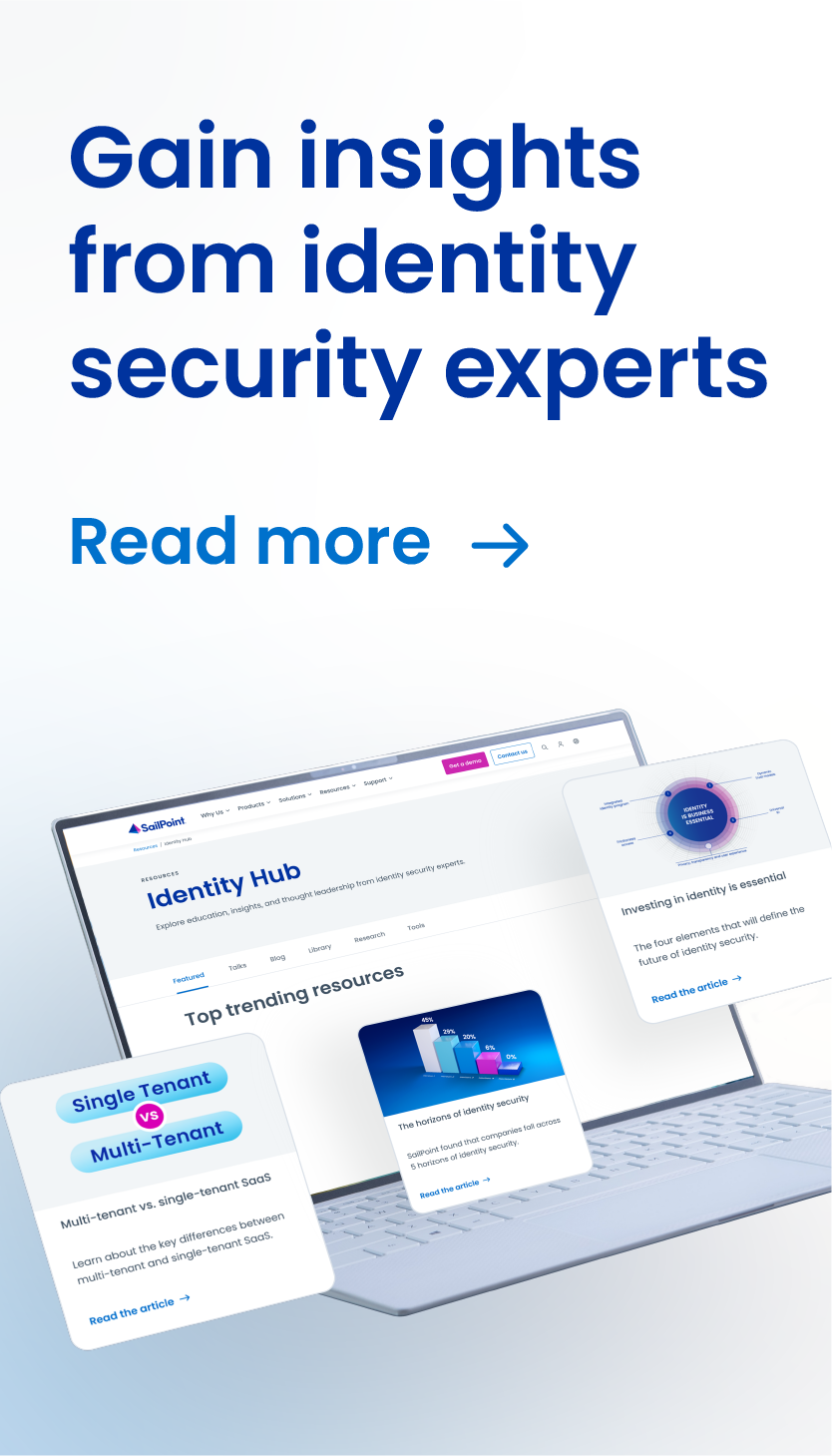Identity as ‘business essential’
In my line of work, I talk to a lot of people at companies of different sizes and industries. The vast majority of those people are charging down their digital transformation path with varying degrees of success and maturity. Some started early and are years into the process with most, if not all, of their business now housed in the cloud. Others took a more conservative approach and are living in a hybrid environment with only some of their less mission-critical business in the cloud.
In either case, the one event that has cast a spotlight on every organizations’ digital transformation journey? The COVID-19 pandemic and the rapid shift to a virtual workforce we’ve seen happen seemingly overnight. It’s become the forcing function for companies to realize that they are either well ahead of the digital transformation curve or woefully behind and have work to do.
The reason I bring this up is that in this rush to digitize and virtualize our business and workforce, it’s become evident that there are a lot of companies out there today who believe they are ‘doing identity’ but what they’re actually doing is just the first step – providing access. Sure, companies can hand out laptops and provide access to the systems and data their workers needs to be productive while working remote, but that doesn’t solve the problem. It many ways it actually creates a much larger problem.
Think of it this way – when the COVID-19 pandemic struck, it forced our world to stay home – schools shut their doors, leaving teachers scrambling to figure out how to teach their students from home. Non-essential businesses were forced to close which immediately threw our economy into a stall and entire workforces went virtual. There was no playbook or foundation in place to anticipate the impact a pandemic and subsequent quarantine would have on our world. This has created a sense of chaos and disarray that we’ve never seen before as a society.
In the same way, when businesses provide access but don’t have a playbook in place for who should have access and how that access can and should be used, you introduce a similar sense of chaos and disarray. Businesses cannot afford to provide access without having an identity playbook to back up those decisions. Not everyone in the business should be granted rights to everything. It’s like saying here are the keys to the front door, back door and basement door to every house in the country. It becomes a free-for-all, introducing a boatload of risk to the business.
One of the easiest ways to illustrate how essential identity governance needs to be for businesses around the world today is this: imagine our world without it.
- For office workers – how do you do your job securely without opening yourself up to a potential liability every time you access a non-secured application or data source?
- For the CIO – how do you prove to auditors that you know, without a shadow of a doubt, who has access to the applications and infrastructure and data that make up your business?
- For the CISO – how can you report into your CEO with confidence that all sensitive IP is secure from potential theft? The only way to do that is to be able to see and understand all users and how their access credentials are secured and validated based on their job role and function within the business.
- For your customers – how do you guarantee that their sensitive data is protected from a potential data breach?
Without identity, all of these questions remain unanswered. No business can afford to move forward without being able to confidently answer each of these questions at a moment’s notice.
The fact of the matter is, in the last few weeks alone, identity has proven to be more relevant than ever before. And while I hate to point to a worldwide pandemic – of all things — to illustrate how ‘business essential’ identity governance is today, it has become the most tangible real-world example to illustrate why identity must be the foundation of every business around the world today.
I’ll be writing a series of blogs in the coming weeks that illustrate just how much of a driving force identity can be for organizations today. For now, I’d be curious to hear from you – how business essential do you consider identity to be for your business, both pre- and post-COVID-19?



Discussion